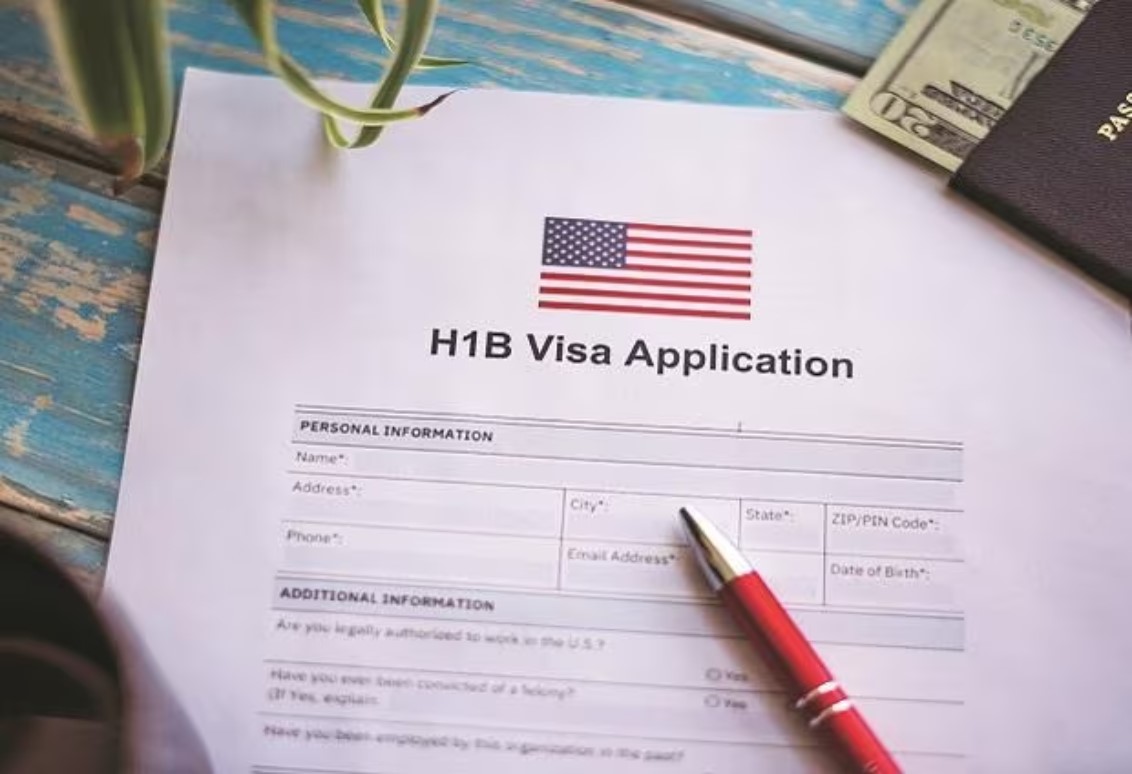The draft rule also removes the mandate for the annual publication of eligible countries for these seasonal visa programs, simplifying program administration…reports Asian Lite News
The White House Office of Information and Regulatory Affairs (OIRA) is in the final stages of reviewing a significant overhaul of the H-1B visa program, according to a report by Bloomberg Law. This marks the last step before the new regulations are made public.
Last year, the US Citizenship and Immigration Services (USCIS) issued draft regulations that included changes to eligibility standards, particularly degree requirements, for the H-1B visa, which tech companies widely use to hire skilled foreign workers. OIRA received the final rule (1615-AC70) on Thursday, the report added.
The proposed changes also include an update to the annual lottery system for H-1B visas, aiming to give each potential applicant an equal chance in the selection process. This adjustment was finalized in January, ahead of the fiscal 2025 visa lottery. The program has an annual cap of 85,000 new visas, with 20,000 reserved for applicants holding advanced degrees from US institutions.
In addition to these changes, the draft regulations clarify criteria for cap-exempt visas and introduce a policy that grants deference to prior agency decisions when processing visa extension requests.
Meanwhile, separate regulations aimed at improving worker protections in the H-2A and H-2B seasonal visa programs also passed White House review on Thursday. According to the report, these visa programs are used for agricultural and non-farm seasonal workers. A draft rule released last year (RIN 1615-AC76) addresses issues such as illegal fees and worker abuses, proposing penalties including up to a four-year ban for employers found in violation of worker safeguards.
The draft rule also removes the mandate for the annual publication of eligible countries for these seasonal visa programs, simplifying program administration.
Once the White House review is complete, the finalized regulations for both the H-1B and seasonal visa programs will be published, potentially affecting employers and foreign workers. These updates are part of the Biden administration’s broader efforts to modernize U.S. immigration policies and enhance worker protections.
Drop in H-1B visa approvals
In fiscal year 2024, the top seven Indian IT companies collectively saw only 7,299 H-1B visa petitions for new employment approved, marking a dramatic decrease from the 14,792 approvals reported in fiscal year 2015. This analysis, conducted by the National Foundation for American Policy (NFAP), a non-partisan think tank based in the United States, highlights a significant downward trend in approvals for these firms.
The 7,299 approvals accounted for just 5.2% of the total H-1B visa approvals for FY24, equating to a mere 0.004% of the US civilian workforce. Denial rates for H-1B visa applications remained low, recorded at 2.5%, a slight drop from 3.5% in FY23, according to the NFAP findings.
The report also cautioned that denial rates could rise if the incoming Trump Administration reinstates the restrictive immigration policies seen during his first term.
Meanwhile, the US Department of Homeland Security (DHS) announced a significant extension of the automatic work permit renewal period for spouses of H-1B and L-1 visa holders, according to an announcement by USCIS. Starting January 13, 2025, the renewal period will increase from 180 days to up to 540 days for applications submitted on or after May 4, 2022.
H-1B visa approvals for Indian IT firms drop
The H-1B visa approvals for Indian IT firms have dropped by more than half since 2015, a new study has found. According to an analysis of US data by the National Foundation for American Policy (NFAP) – a US-based non-partisan think-tank – India’s top seven IT firms had only 7,299 H-1B petitions for new employment approved in fiscal year 2024 as opposed to 14,792 approvals in FY15.
The H-1B visa is a temporary nonimmigrant visa allotted through a lottery system that offers a route for graduates and skilled workers to work in the US in specialty occupations.
Nearly half of the approved H-1B petitions in FY24 (49.1%) were in professional, scientific and technical services, followed by educational services (11.9%), manufacturing (9.3%), health care and social assistance (6.5%).
Amazon, which remains the biggest sponsor of H-1B visas, saw 3,871 approvals in FY24, lower than 4,052 in the previous year. Similarly, Indian IT giants like Cognizant (2,837), Infosys (2,504), TCS (Tata Consultancy Services) (1,452) and others also saw a significant drop in H-1B visa approvals, the report stated.
Several analysts have linked the decline in approvals to global recession and a shift in workforce needs. Ajay Sharma, founder of Abhinav Immigration Services, said, “The only reason I can think of is that the global recession and AI are impacting the business models of all major players. They do not need to hire for redundant positions or for positions in divisions that are losing business due to the recession.”
ALSO READ: Solidarity With Syrians

